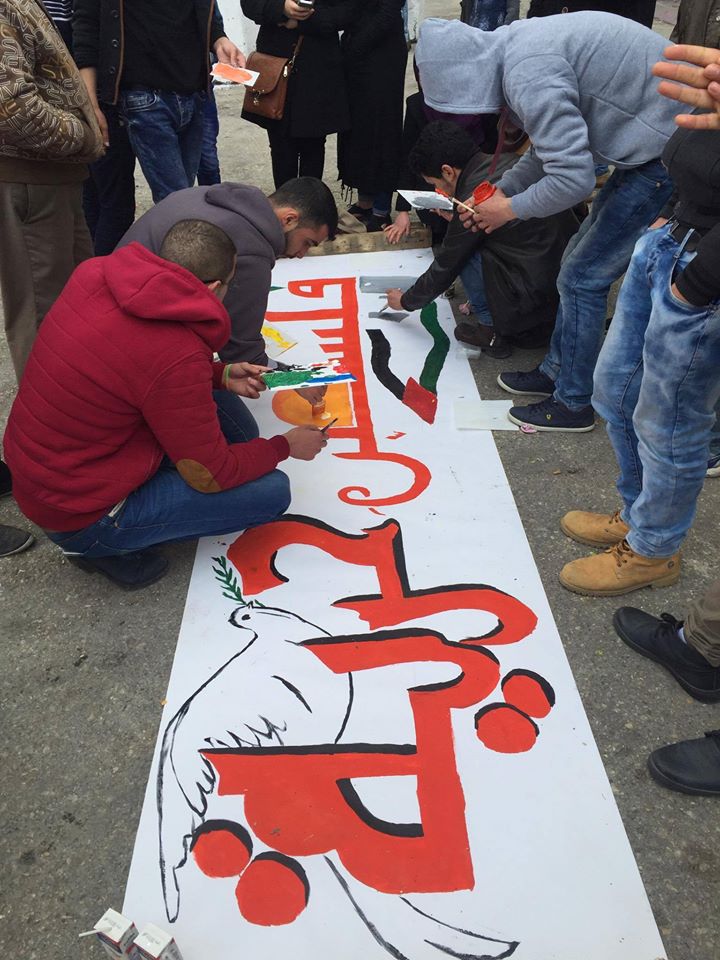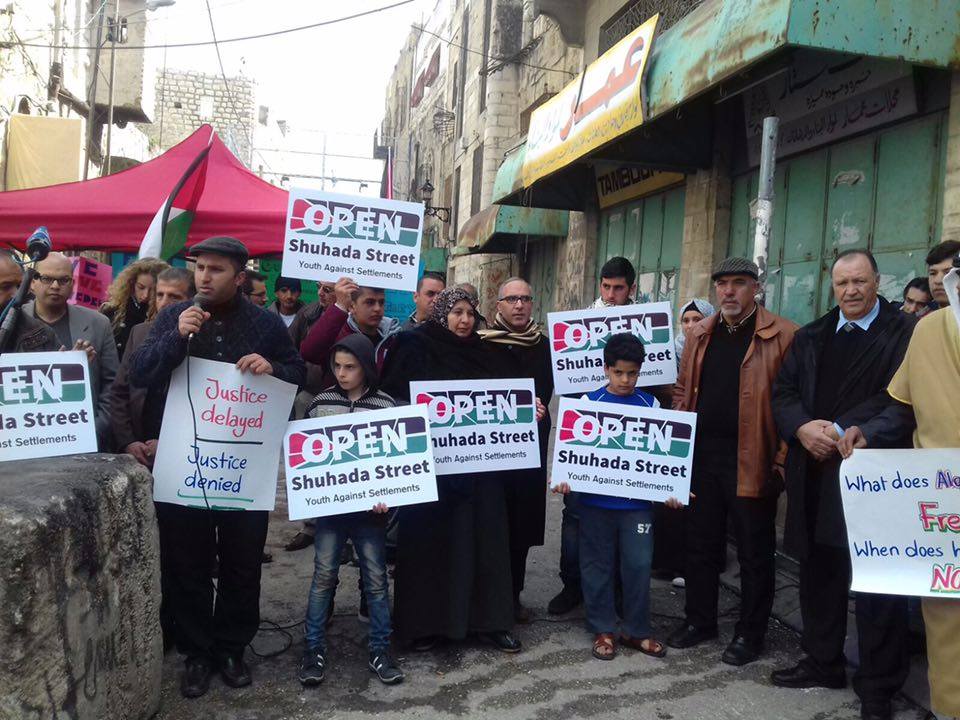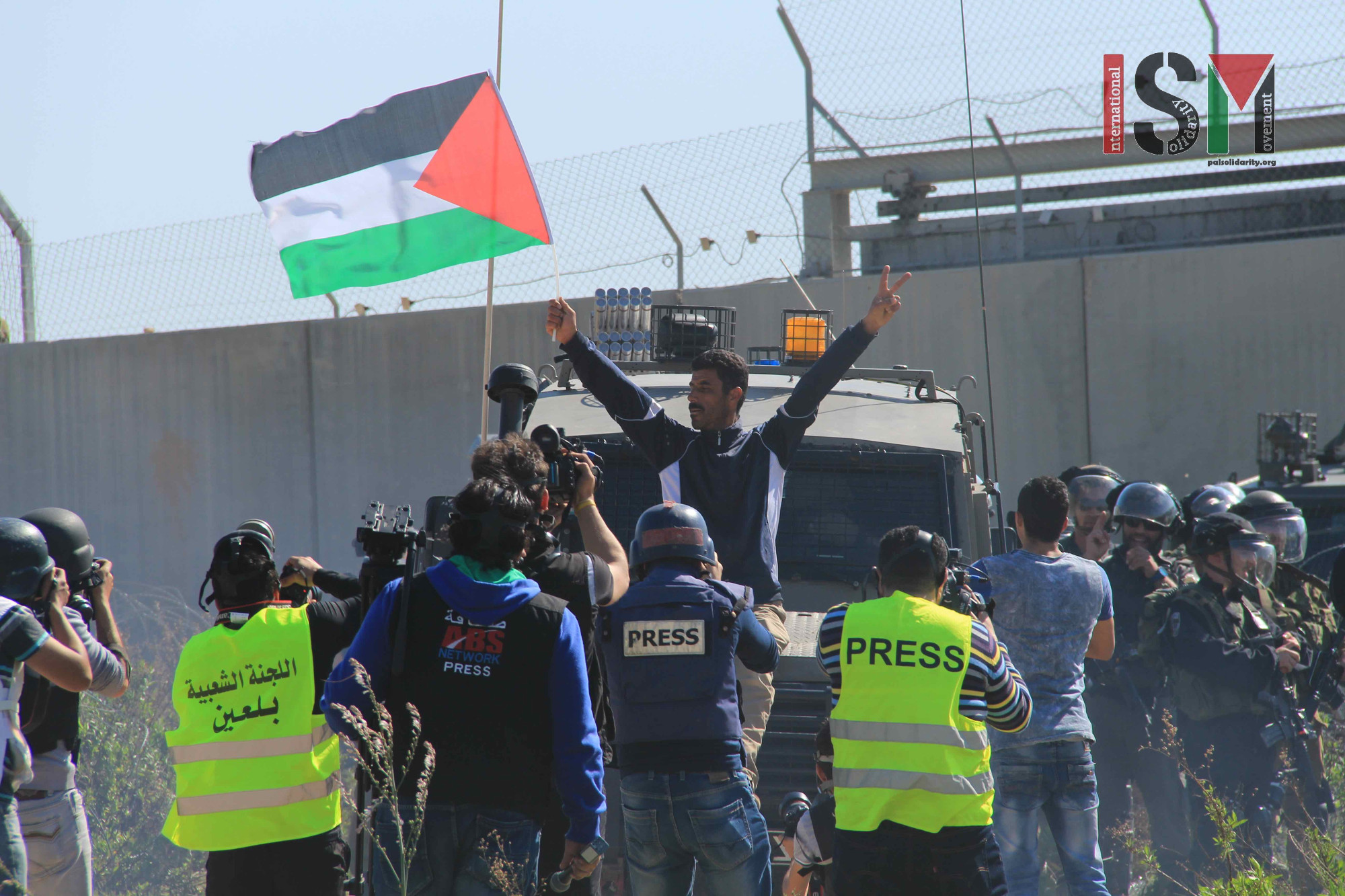Tag: Israeli Army
-
Peaceful painting-activity met with violence by Israeli army
21st February 2015 | International Solidarity Movement, Al-Khalil team | Hebron, occupied Palestine On Sunday the 21st of February, the people of Hebron along with fellow activists gathered for part of a week long campaign against occupying Israel to show solidarity and oppose the closure of Shuhada Street to the Palestinian people. Shuhada Street has…
-
Youth Against Settlements holds press conference in front of Shuhada Street checkpoint to announce 2016 Open Shuhada Street campaign
20th February 2016 | Youth Against Settlements | Hebron, occupied Palestine Youth Against Settlements held a press conference in front of the Shuhada Street checkpoint to announce the beginning of the Open Shuhada Street Campaign. Over a hundred people attended. Palestinian TV, AL-Quds TV, and other local and international media organizations were present. Youth Against…
-
11th annual Bil’in demonstrations see protestors confront Israeli military at the apartheid wall
20th February 2015 | International Solidarity Movement, Al-Khalil team | Bi’lin, occupied Palestine On Friday the 20th of February, protesters took to the streets of Bil’in for the 11th consecutive year to demonstrate against the apartheid wall. Palestinians and international activists came together in solidarity to unite against the annexation wall which provides shelter for…



